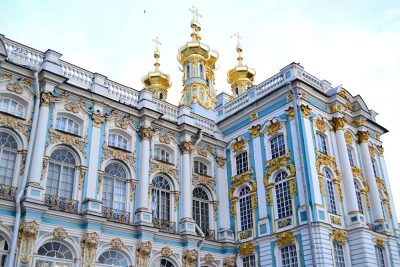By: Daniele Piperno
When Vladimir Putin declared a wide-scale attack against Ukraine on February 24, the response from the West was relatively uniform. Most countries rallied in support of Ukraine, condemning Putin’s actions while simultaneously punishing the Russian leader with extremely severe sanctions. Financial attacks against Russian banks, companies and oil imports were specifically suited to target the basis of the country’s economy.
Said actions, alongside a general mistrust towards Putin as a whole, have greatly swayed public opinion against the Kremlin. For example, within the United States, the Pew Research Center reported that a colossal 92% of adults do not trust Putin in handling global affairs.
The American response to Putin’s actions is to be expected. After all, the wariness surrounding Putin is not due to the Ukrainian conflict alone. Within the nearly 20 years that Putin has been in power, there have been several accusations of the leader murdering his enemies, imprisoning dissenters, and eliminating his opposition.
It has been impossible to prove that Putin had a hand in any of the deaths he has been suspected of carrying out, but the amount of untimely demises of many Russian dissidents prove otherwise. The 2008 conflict between Russia and Georgia, a war used by Putin to reassert Russia on the world stage, along with the 2014 annexation of Crimea, also played a major role in shifting public opinion.
Still, the data gathered on the American perception of Putin presents an interesting anomaly. The Pew Research Center found that 6% of Americans expressed confidence in the Russian leader after his invasion of Ukraine. Granted, there can never be uniformity in surveys on public opinion. Is the 6% scattered across the U.S., or is the majority of the group subscribed to a particular political ideology?

An initial analysis of right-wing news outlets points in favor of the latter. The popular saying “the enemy of my enemy is my friend,” seems to be true for many well-known U.S. conservatives who have argued in favor of Putin throughout the war. Rolling Stone has even collected the thoughts of numerous right-wing figures.
One example is Marjorie Taylor Greene echoing Putin’s justification for the war in an interview with Rural Voice of America. “They should be talking about the neo-Nazi militia groups that are very much integrated into Ukraine’s military,” Greene said. Keeping in mind Greene’s track record of making unfounded statements, it would be easy to dismiss her comments as outright conspiracies. However, other instances of right-wing figures like Cassandra MacDonald tweeting, “I like Putin better than Zelenskyy. At least you know who Putin is. Zelenskyy is a shifty little weasel,” or Tucker Carlson stating on live television that “In American terms, you would call Ukraine a tyranny. But Joe Biden likes Ukraine, so Putin bad, war good,” has contributed to right-wing approval of Putin.
These conservative sentiments align with a larger narrative that involves Russia tampering with the American system. Famously, in the 2016 presidential election, Russia used cyberdata to shift American public approval in favor of Republican candidate Donald Trump because of his friendlier relations with Moscow.
This time around, rather than just interference, Russia is seeking validation from countries abroad to reinforce its justifications for its war. Recently, it’s been very common in Russia for state-controlled media to echo American pro-Putin rhetoric. When commenting on Carlson’s take on the Russo-Ukrainian conflict, state-owned media source Russia Today wrote in a recent article, “There are no actual reasons for Americans to hate Putin, even if the left-wing media tells them that ‘anything less than hating Putin is treason’ Carlson said, unleashing a rhetorical self-reflection quiz.”
Regardless of how much Russian nationalist media and propaganda is spread in the U.S., it will never be enough to sway the opinion of an entire political party. Yet, Russian propaganda has partially been effective on American audiences. There have been numerous reports of crowds chanting Putin’s name and polls in which Americans consider Putin to be “stronger” than Biden.
These stances become even more ironic when thinking about the far-right’s relationship to Russia throughout the Cold War. During this time, U.S. conservatives were quick to label any policy not in line with theirs as “communist” and associate it with its apparent origin in Russia. Today’s rightward bend in approval of Russia, therefore, marks a drastic shift from this legacy.
Despite this pattern of Putin support on U.S. soil, however, the war is still in its early stages. Thus, it is too soon to predict the final outcome of both the conflict and its public perception.
Foreign Affairs Feature is a collaboration project between The Daily Free Press and the International Relations Review

